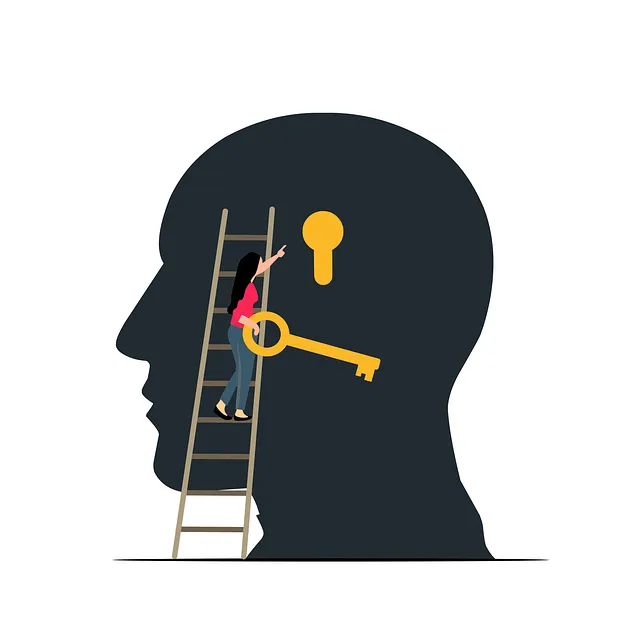Westminster Kaiser Permanente emphasizes coping skills as a foundation for managing life's challenges, focusing on effective stress and emotion handling strategies for enhanced mental wellness. They offer tailored programs, resources, and support services like Social Skills Training and Trauma Support to build resilience and promote fulfilling lives. By identifying personal stressors, cognitive reframing, empathy building, and mindfulness practices, their experts empower individuals with powerful coping mechanisms integrated into daily routines. Westminster Kaiser Permanente prioritizes long-term mental health through burnout prevention strategies and anxiety relief activities for a supportive environment.
In today’s fast-paced world, developing robust coping skills is essential for navigating life’s challenges. Understanding coping skills provides a foundation for mental well-being, enabling individuals to effectively manage stress and adversity. This article explores various aspects of coping skill development, including the role of organizations like Westminster Kaiser Permanente in mental health support. We delve into identifying personal stressors, cognitive strategies for reframing thoughts, and building resilience for long-term mental health.
- Understanding Coping Skills: A Foundation for Mental Well-being
- The Role of Westminster Kaiser Permanente in Mental Health Support
- Identifying Personal Stressors: Navigating Life's Challenges
- Cognitive Strategies: Reframing Thoughts for Better Coping
- Building Resilience: Effective Tools for Long-term Mental Health
Understanding Coping Skills: A Foundation for Mental Well-being

Coping skills, often overshadowed as a mere afterthought in discussions about mental health, form the bedrock of an individual’s ability to navigate life’s challenges. Understanding and cultivating these skills is akin to equipping oneself with a powerful toolkit for navigating turbulent waters. At Westminster Kaiser Permanente, mental health professionals emphasize that coping isn’t about avoiding problems but rather learning effective strategies to manage stress, emotions, and difficult situations. This proactive approach not only enhances one’s ability to cope but also fosters overall mental wellness.
Developing these skills involves recognizing the importance of both internal resources (like inner strength) and external support systems. Engaging in activities such as Social Skills Training can provide individuals with practical tools for communicating, connecting, and managing conflicts. By integrating these coping mechanisms into daily life, people can build resilience, improve their mental wellness, and lead more fulfilling lives, ensuring they are better equipped to handle whatever comes their way.
The Role of Westminster Kaiser Permanente in Mental Health Support

Westminster Kaiser Permanente plays a pivotal role in fostering mental health awareness and providing comprehensive support services within its community. Recognizing the importance of strong coping skills, the organization offers various programs and resources to assist individuals in navigating through life’s challenges. Through collaborative efforts between healthcare professionals and dedicated support staff, they ensure that every patient receives tailored guidance and care.
The facility’s commitment to Mental Health Awareness is evident in their widely acclaimed Trauma Support Services, which employ innovative communication strategies to address complex psychological needs. By creating a safe space for individuals to share their experiences, these services facilitate healing and empower patients with effective coping mechanisms. Westminster Kaiser Permanente’s holistic approach ensures that mental well-being is integrated into every aspect of an individual’s healthcare journey.
Identifying Personal Stressors: Navigating Life's Challenges

Identifying Personal Stressors is a pivotal step in navigating life’s challenges, as recognized by Westminster Kaiser Permanente mental health experts. This process involves introspecting to understand what triggers stress and anxiety. Whether it’s work-related pressure, personal relationships, or financial concerns, recognizing these stressors empowers individuals to take proactive measures. By acknowledging their unique sources of stress, people can better equip themselves with coping mechanisms tailored to their specific needs.
Westminster Kaiser Permanente offers valuable resources like Mental Wellness Coaching Programs Development and Trauma Support Services, designed to enhance cultural competency among healthcare providers. These initiatives ensure that individuals receive culturally sensitive support, addressing not just the symptoms but also the underlying causes of stress. Incorporating such programs promotes holistic well-being, fostering an environment where people can openly discuss their challenges and find effective solutions tailored to their diverse backgrounds and experiences.
Cognitive Strategies: Reframing Thoughts for Better Coping

At Westminster Kaiser Permanente, mental health professionals emphasize the power of cognitive strategies, such as reframing thoughts, to enhance coping skills. This involves challenging negative thought patterns and replacing them with more balanced perspectives. For example, instead of viewing a challenge as an insurmountable obstacle, individuals can reframe it as an opportunity for growth and learning. Such a shift in perspective can significantly reduce stress and anxiety by fostering resilience and promoting a more positive outlook on life’s challenges.
Empathy building strategies and mind over matter principles play a crucial role in this process. By cultivating empathy, people gain insights into others’ experiences, which can help them understand their own emotions better. Mind over matter techniques, such as deep breathing exercises or mindfulness meditation, teach individuals to take control of their thoughts and feelings. These practices enable people to reduce stress responses, thereby enhancing their ability to cope effectively with demanding situations. Through these cognitive, empathy-based, and mind-body approaches, Westminster Kaiser Permanente seeks to empower individuals to lead healthier, happier lives.
Building Resilience: Effective Tools for Long-term Mental Health

Building resilience is a key aspect of long-term mental health, and it’s an area where Westminster Kaiser Permanente has been making significant strides. By empowering individuals with effective coping skills, they aim to foster a sense of strength and adaptability in the face of life’s challenges. This proactive approach not only enhances overall well-being but also plays a pivotal role in preventing burnout, particularly among healthcare providers who often bear heavy workloads.
One such strategy is integrating Burnout Prevention Strategies for Healthcare Providers into their mental wellness podcast series production. These podcasts offer valuable insights and practical tips to help professionals manage stress, maintain work-life balance, and cultivate mental resilience. Additionally, engaging in activities that promote Anxiety Relief can be transformative, allowing individuals to find calm amidst chaos. Through these initiatives, Westminster Kaiser Permanente is creating a supportive environment where mental health is prioritized, ensuring a brighter and healthier future for its members.
Coping skills development is a multifaceted process that empowers individuals to navigate life’s challenges with resilience and mental well-being. By understanding coping mechanisms, identifying personal stressors, employing cognitive strategies, and building resilience, people can enhance their ability to overcome difficulties. Organizations like Westminster Kaiser Permanente play a vital role in supporting mental health by providing resources and guidance tailored to individual needs. Through these efforts, individuals can cultivate effective coping skills, fostering a more balanced and fulfilling life.






